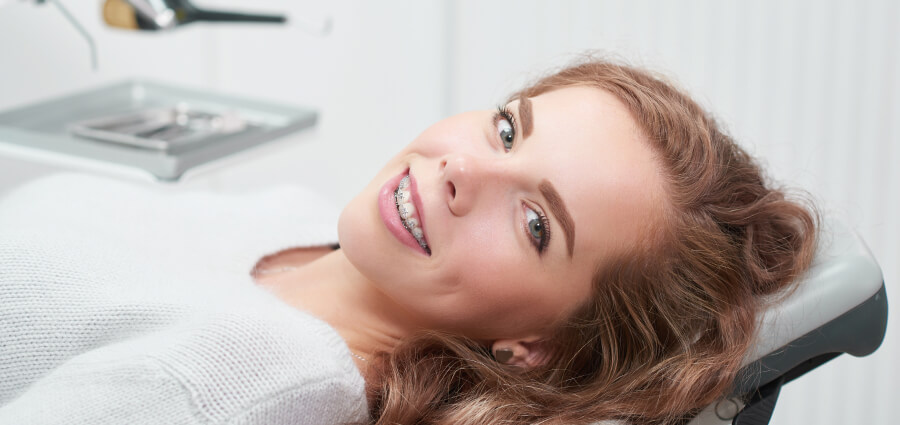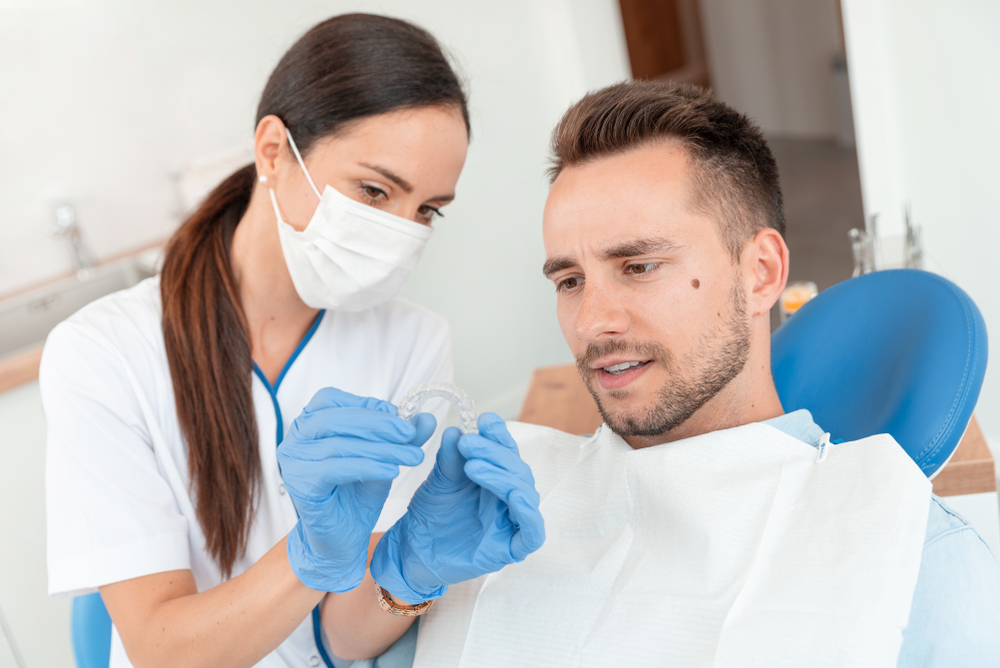Say Goodbye to Underbites and Hello to a Confident Smile
Underbites, also known as malocclusions, occur when the lower jaw protrudes beyond the upper jaw. This can lead to difficulty chewing and speaking, as well as other dental issues. Underbites can be caused by a variety of factors, including genetics and thumb-sucking in childhood.
Fortunately, many treatment options are available for underbites with our top-rated orthodontist in Miami, FL, office of Dr. Stephen Grussmark. Discover the causes, symptoms, and orthodontic treatment options for underbites. Call (305) 441-1200 to learn more.
What Are Underbites?
An underbite is a dental condition where the lower teeth protrude beyond the upper teeth when the mouth is closed. This can result in an uneven bite, where the front teeth don’t meet properly, and the lower jaw appears more prominent than the upper jaw.

Underbite Symptoms
The symptoms of underbites vary depending on the severity, but common symptoms include:
- Protruding Lower Jaw: The lower jaw and teeth protrude slightly forward.
- Uneven Bite: The front teeth may not meet properly, resulting in an uneven bite.
- Difficulty Biting and Chewing: An underbite can make it difficult to bite and chew food properly.
- Speech Problems: An underbite can affect speech, causing difficulty with sounds or pronunciations.
- Jaw Pain: Misalignment of the jaw can cause pain and discomfort.
- Headaches: Tension in the jaw muscles can lead to headaches.
- Tooth Wear: An underbite can cause excessive wear on the lower teeth due to misalignment.
- Increased Risk of Dental Problems: Misaligned teeth can be harder to clean, increasing the risk of tooth decay and gum disease.
Schedule a consultation with our South Florida orthodontic specialist if you’re experiencing any of these symptoms to determine if you have an underbite and what treatment options are available.
Treatments for Underbites
There are several treatment options available for underbites, depending on the severity of the condition. The most common treatments for underbites include:
- Orthodontic Treatment: Orthodontic braces can shift the teeth into the correct position. Invisalign clear aligners may also be considered. In more severe cases, headgear or other appliances may help move the jaw into position.
- Surgery: In some cases, orthognathic surgery may be necessary to correct the underbite. This involves repositioning the upper or lower jaw to achieve the proper alignment. In addition to jaw surgery, tooth extraction surgery may also be a treatment option for a severe underbite.
- Jaw Exercises: Exercises such as tongue thrusting and jaw-strengthening exercises can be used to help correct an underbite in your permanent teeth.
- Oral Appliances: Appliances such as a chin cup or reverse-pull face mask can help correct an underbite in children.
Living with an Underbite
While treatment is often recommended for functional and aesthetic reasons, some individuals with mild underbites choose not to pursue corrective measures. If you’re living with an underbite, consider the following:
- Oral hygiene: Maintaining a meticulous oral hygiene routine with regular brushing, flossing, and dental checkups is crucial to prevent gum disease and tooth decay, which are more likely to occur with misaligned teeth.
- Diet: Opting for softer foods that require less biting pressure can minimize discomfort and potential damage to teeth caused by the misaligned bite.
- Self-consciousness: Underbites can affect self-confidence for some people. Talking to a dentist or orthodontist can help explore treatment options and address any anxieties.

Frequently Asked Questions
An underbite can be diagnosed through a physical examination by a dentist or an orthodontist. X-rays and other imaging techniques can help determine the extent of the underbite and the best treatment options.
Underbite treatment can be started at any age, but it’s best to start as early as possible. In children, treatment may begin as early as seven to eight, while adults can begin treatment at any time. However, the earlier the treatment, the easier it is to correct the underbite.
In some cases, underbites can come back after treatment. This can happen if the patient doesn’t follow proper aftercare instructions or doesn’t wear their retainer as directed by their dentist or orthodontist. However, with oral health care, underbite correction should be permanent.
Untreated underbites can cause several health problems, including jaw pain, headaches, speech problems, difficulty eating, and gum disease. Severe underbites can lead to temporomandibular joint disorder (TMD), which can cause pain in your jaw.
Discover the Best Underbite Treatment Options in Miami, FL
Are you struggling with an underbite or another form of tooth misalignment? Don’t let it impact your quality of life any longer! Consult with a dental professional today to determine the best treatment options for your specific case. Whether it’s orthodontic braces, surgery, or other treatments, there is a solution that can help correct your underbite and improve your oral health.
Don’t wait. Take action today by calling our Miami, FL, office at (305) 441-1200 to schedule a consultation. We proudly serve patients in Key Biscayne, Coral Gables, and Hialeah.

